It’s an exciting time for Singaporean cinema. From Cannes to Jeonju and everywhere in between, Singaporean films have become a fixture. While Singapore’s first Palme d’Or, Golden Bear or Golden Lion may still be some years away, it’s a better time than ever to take a look back. What is our Citizen Kane, Casablanca or The Godfather? Has any one film characterized Singaporean cinema as Rashomon did for Japan and Infernal Affairs did for Hong Kong? Is there a definitive Singaporean film?
We spoke to the who’s who in the Singapore film scene—those who set the gears in motion and those who will shape the industry in years to come—and asked them to tell us about their favorite films. The result: Not one outright winner, but a pantheon of the best films this country has produced.
12 STOREYS (1997)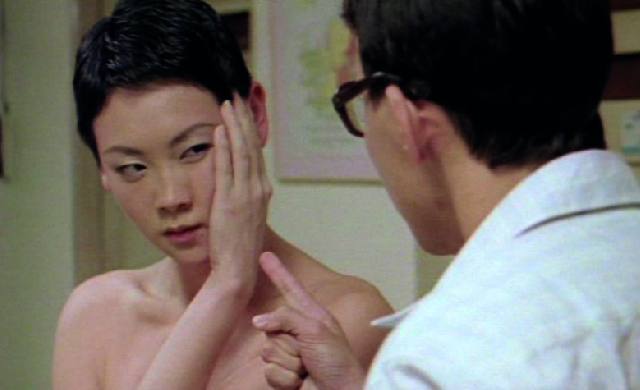
Eric Khoo’s second feature revolves around the residents of an HDB block. Ah Gu (Jack Neo) copes with the expectations and discontent of his China bride (Quan Yifeng), San San (Lucilla Teoh) lives a sad, solo existence and Meng (Koh Boon Pin) tries to take control of his siblings’ lives while their parents are away. The Eric Khoo Box Set (Mee Pok Man and 12 Storeys) is available from the Sinema Online Store. A new box set which includes Khoo’s other features Be With Me and My Magic will be available soon. Nicholas Chee
Nicholas Chee
Founder and Managing Director of Sinema Media
My favorite Singaporean film so far has got to be Eric Khoo’s 12 Storeys. It is probably the most important film piece for me and made me see Singapore from a different perspective; a view from the outside looking in.
Most memorable scene: There are too many great scenes but the most memorable one for me would have to be the one where the older brother, Gor (Koh Boon Pin), questions his sister Trixie’s (Lum May Yee) “ah beng” boyfriend Eddy at home while she is getting ready to go out. Both have very contrasting views of what defines success and morals. The scene clearly defines the contradictions of a nation in development. Royston Tan
Royston Tan
Director, Chuan Pictures
My favorite film has to be 12 Storeys by Eric Khoo. Being someone who lives in an HDB flat, I can feel the suppression of individuals living in pigeon holes. It was also the first time that HDB flats were captured so beautifully in a film.
Most memorable scene: I think it has to be the long take of the elderly woman scolding the fat girl—the monologue is intense and cleverly executed. Wee Li Lin
Wee Li Lin
Director, Bobbing Buoy Films
When I first watched 12 Storeys I was in a multi-narrative movie phase. Do the Right Thing and Short Cuts were films I was very inspired by and I thought 12 Storeys was right up there with them in terms of script, performances, editing and execution. I liked the pathos and tragi-comedy of the characters.
Most memorable scene: When Meng was quizzing Trixie’s boyfriend on how many “O” Level passes he had. It’s hilarious.
ZOMBIE DOGS (2004)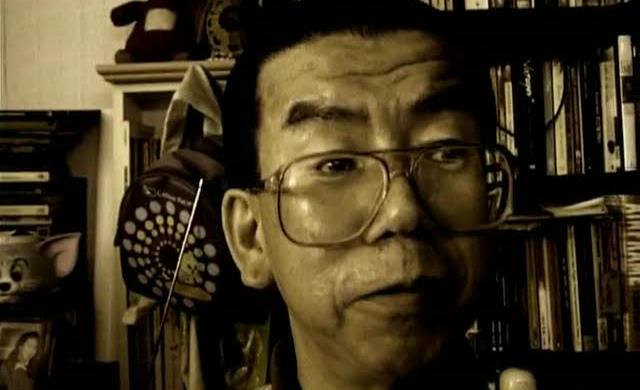
In this documentary (or mockumentary), the eccentric director and film enthusiast Toh Hai Leong laments Singapore’s “zombie-fied” nature before planning to make a snuff film. Watch it online at tcchew.wordpress.com/2009/09/09/zombie-dogs. Tan Pin Pin
Tan Pin Pin
Director
Zombie Dogs is a portrait of film buff Toh Hai Leong, and how he juggles his daily job as a security guard and his diabetes with his desire to make a soft porn film with the help of a few friends. The tone switches from pathos to prurience to bittersweetness with a note of dark humor under it all. Sometimes it feels that Hai Leong is being taken advantage of too. The twists and turns kept me riveted; I had no idea where each cadence would end. The pacing and the control of tone are constructed in the edit (this film is edited by Chew Tze Chuan). Above all, Zombie Dogs feels genuine and it does not try too hard, or take itself too seriously. It just is.
Most memorable scene: The most memorable scene for me was where Toh Hai Leong was cooking another packet of instant noodles for himself because that was all he could afford. It was funny, yet incredibly sad too. The film often flip flops the fine line between humor and pain, between our discomfort and our empathy.
Red Dragonflies (2010)
In non-linear narratives, 17-year-old Rachel and her two friends follow an abandoned railway track while an older Rachel reconnects with one of them nine years later. A poignant study of youth and its waning, it documents a side of Singapore that will soon be lost. Red Dragonflies opens at Filmgarde Iluma on May 5. Fran Borgia
Fran Borgia
Director and Producer, Akanga Film
My favorite Singapore film to date is Red Dragonflies by Liao Jiekai. I feel it captures a very important essence of Singapore’s transforming history, and it is a very personal film on our youth and our past.
Most memorable scene: Near the end of the film, the camera shows us, very innocently, a group of young students enjoying what will soon be only part of their memories. Those few beautifully shot frames transmitted so many feelings and emotions to me.
15 (2003)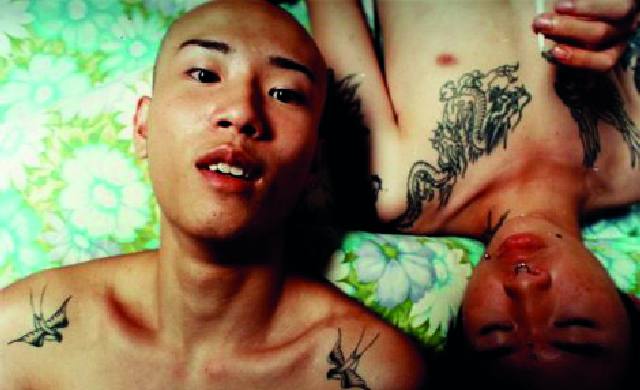
Eight years have passed, but Royston Tan’s portrait of teenage gang culture is as powerful and influential as ever—if you’ve been able to see it in full, that is. It remains a symbol of censorship’s suffocating effect. Where to wa tch it: If previous un-bannings are anything to go by, we’re probably about 10 years away from being able to buy it on DVD. Until then, a DVD run to Australia or the US is your best bet. Philip Cheah
Philip Cheah
Editor of BigO, critic, curator and festival director
This film is so real that you feel that you’re being slapped in the face. No other Singaporean film portrays the youth of today so potently and exists as both fiction and documentary at the same time. Making this film happen was a miracle. The fact that the original cast failed to show up on the first day of shooting, meant that the project would collapse immediately. So 15 the feature was improvised by slapping 15, the original short, onto the front of the film, and then continuing with an improvised cast.
Most memorable scene: 15 has a scene where the boys are staring at well-known Singapore buildings and wondering which would provide the best suicide jump. The rapid cuts and fast music pump your adrenalin and when you catch your breath, you wonder for a split second what all Singapore’s progress amounts to. Take note that the DVD is not for sale in Singapore and having it shown uncut in a Singaporean cinema is like taking a flying leap. Jeremy Sing
Jeremy Sing
Founder and Editor of local indie film blog SINdie
15 is an old film but it captured a fresh and raw voice before the avalanche of filmmaking caught on in Singapore. It spoke strongly to me because it disregarded conventional filmmaking structure and latched on the freewheeling adventures of three ah bengs in a deep and honest way. In 15, Royston has an unparalleled grasp of visuals and aesthetics that no other filmmaker comes close to. It is even funny, which is rare among independent filmmakers in Singapore—everyone is afraid of making mistakes and wants too badly to be taken seriously.
Most memorable scene: The one with the ear-piercing. One of the boys sheds some tears and his “brother” pats him on the shoulder and says it’s alright to cry, because men’s tears are more precious. It’s a beautiful line.
Nobody’s Home (2010)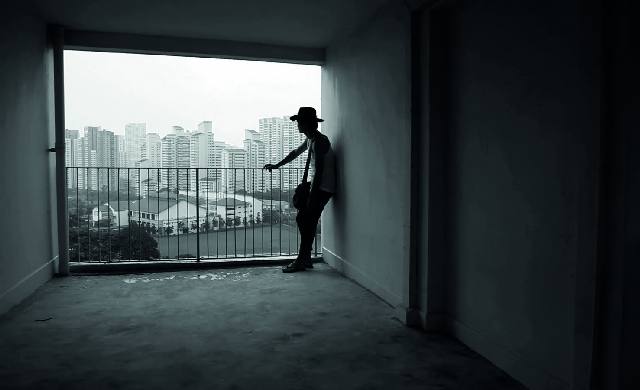
The man with no name strolls into the Queenstown wasteland. Think A Fistful of Dollars with ah bengs. Look out for it at The Substation’s next series of short film screenings. In the meantime, find out more about Nelson Yeo at nelsonyeo.wordpress.com. Aishah Abu Bakar
Aishah Abu Bakar
Program Manager, Moving Images, The Substation
Who would have thought of making a minimalist Western in Singapore, filmed in empty and dilapidated spaces? The score is fantastic, the cinematography brings you to the space and the lack of dialogue works very well with the story-telling.
Most memorable scene: When the protagonist, Nobody, decides to treat himself to a feast after he’s paid his dues. He meticulously aligns his plates of food across a table, only to pull them all towards him as he chows down without self restraint.
Careless Whisperer (2005)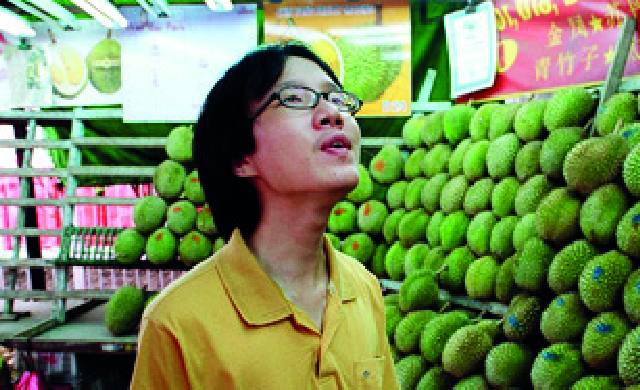
In Royston Tan’s short Careless Whisperer, a vocally inadequate man tries to win over the girl of his dreams. Locate the hard-to-find DVD Royston’s Shorts or hold a Royston Tan retrospective. Objectifs Films is the film’s distributor. Leong Puiyee
Leong Puiyee
Assistant Manager, Objectifs
This film never fails to make me laugh. It has a timeless and classic feel to it. With its simple story and comedic touch, Careless Whisperer still strikes a chord as nothing beats a film with a good, yet simple story.
Most memorable scene: The scene with the character, Patrick, practicing his singing skills to various people. It shows how earnest he is in wanting to sing to the girl he likes that it does not matter how silly he looks—or how people are judging him.
Singapore Dreaming (2006)
The second effort from husband and wife writer-director team Colin Goh and Yen Yen is a stirring take on the trials and tribulations faced by an average Singaporean family. The film is not readily available, but check out your local DVD store. Adrian Pang
Adrian Pang
Actor and Artistic Director, Pangdemonium Productions
My favorite Singaporean film is probably Singapore Dreaming because it was well-written, well-directed and well-acted; it took common “Singapore” themes and put a fresh and evocative spin on them.
Most memorable scene: Probably the one where the father dies— very simply filmed but very effective and moving, and Richard Low is great in the role. He’s much too good for Channel 8. Joanna Dong
Joanna Dong
Vocalist and Actress
Singapore Dreaming was a very familiar story. It had strong actors in the cast who pulled off the difficult feat of playing characters that are almost stereotypical with a great amount of authenticity and complexity.
Most memorable scene: The scene at the Father’s funeral, where they were talking about the “Elite Package” paper offering which included many luxuries such as a Mercedes complete with chauffeur! I think it’s marvelous how even though ancestral worship may be an age-old practice, the burnt offerings have always kept up with the times.
Forever Fever (1998)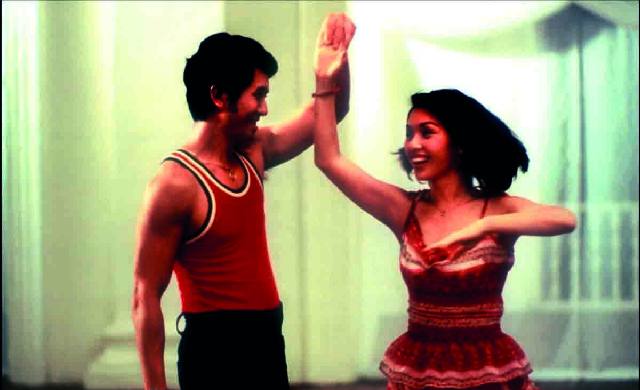
Back in 1998, a young chap named Adrian Pang almost single-handedly made us all want to go back to 1977. Pang plays Hock, a kung fu-loving grocery store employee who wants a motorbike. The route to the bike? A disco contest. Where to wa tch it: A limited edition box set of Glen Goei’s Forever Fever and The Blue Mansion is available from www.thebluemansion.com.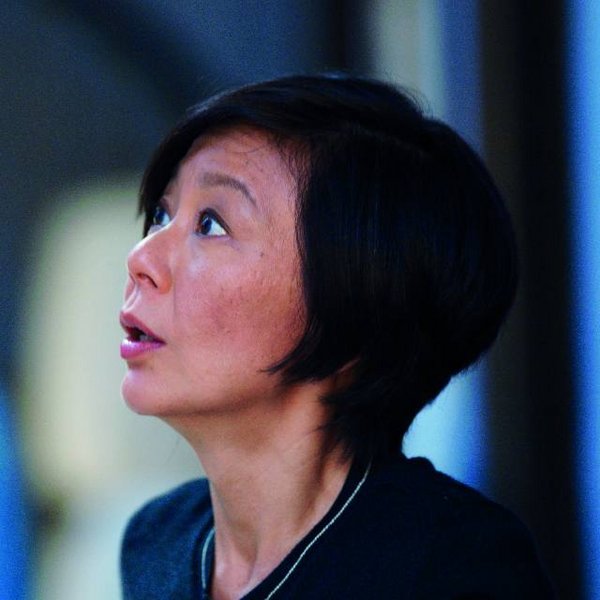 Neo Swee Lin
Neo Swee Lin
Actress
Forever Fever is still my favorite Singaporean film. It was one that I watched in the cinema (I usually watch them on DVD on a small screen) so it’s still very big in my memory.
Most memorable scene: I can never forget that one shot early in the film, of Hock riding his bicycle home at twilight, along a Chinatown street with The Majestic cinema in the background, with the poster of John Travolta in Saturday Night Fever. So beautiful; so evocative of old Singapore. Michael Burke
Michael Burke
Chair, Graduate Film Department, New York University, Tisch School of the Arts Asia
Forever Fever is uniquely Singaporean. It captures the dialects, the food, the culture and heritage. It’s a film that shows the conservative nature of the society but more importantly it shows the Singaporean sense of humor. A lighthearted comedy, it is at once entertaining and complex. Adrian Pang’s character is at first embarrassed by his social status and heritage but arcs to being proud of who he is.
Most memorable scene: The scene where the father discovers that the beautiful young woman in his kitchen is actually his son dressed in drag. The emotions are incredibly complex, moving from attraction to confusion, to disbelief and repulsion. It is a beautifully acted moment.
Sandcastle (2010)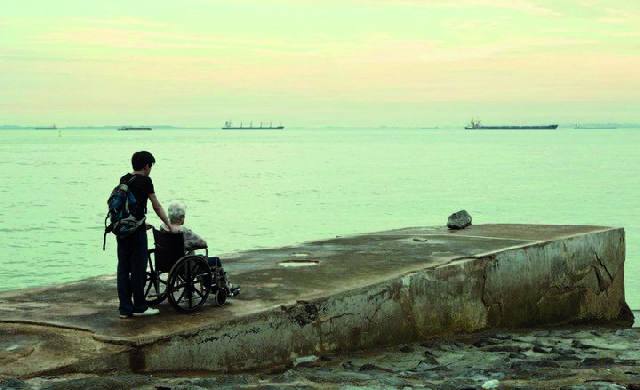
Boo Junfeng’s debut feature follows En (Joshua Tan), an 18-year-old about to commence his National Service. It’s a tumultuous time during which he experiences love, illness, death and the inevitable passage of time. The film has just been released on DVD, so you should find it at any video store near you.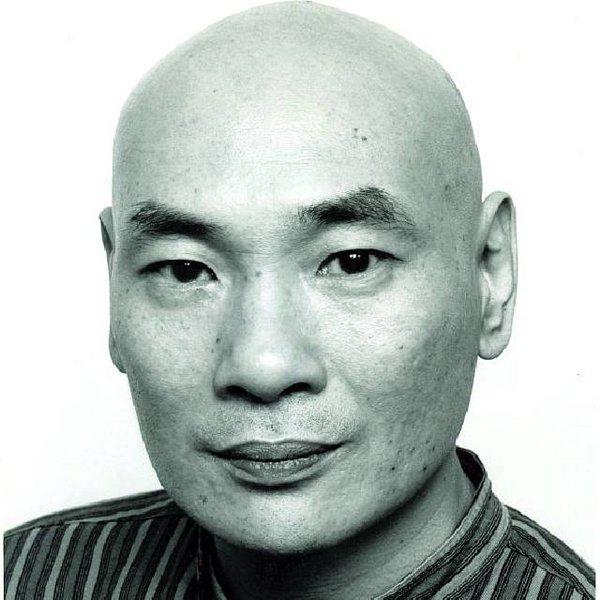 Lim Kay Siu
Lim Kay Siu
Actor
I just love Jun Feng’s story-telling. True to himself, and beautifully told. Any story that shows the beauty of life through love, fragile though life is, gets my vote.
Most memorable scene: I don’t really have a favorite scene. I love the whole, I guess.
The Reunion Dinner (回家过年) (2010)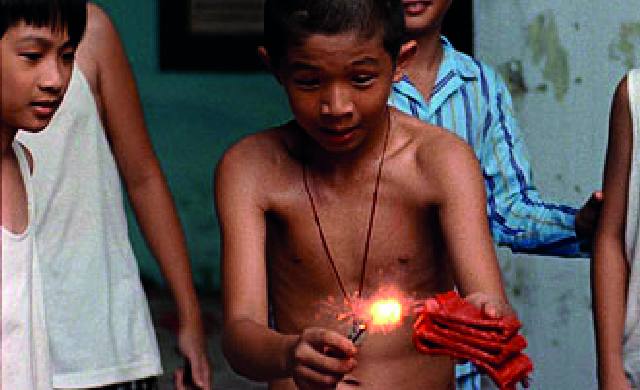
Commissioned for the 2011 River Hongbao, Anthony Chen’s The Reunion Dinner is a heartwarming story about the continuing relevance of the traditional Chinese reunion dinner. Clips from the short are available at www.riverhongbao.sg. Jack Neo
Jack Neo
Director and Actor, J Team Productions
I fully understand kampong life, before HDBs, and I really like the way Anthony Chen portrayed it. When I see it, I really like it. It gives good feelings, and it brings back memories. The research is very well done; all the small details are there. Not just props but the language and mentality.
Most memorable scene: The firecracker scene. It’s one of my childhood memories, and that’s exactly how it happened.
Eating Air (1999)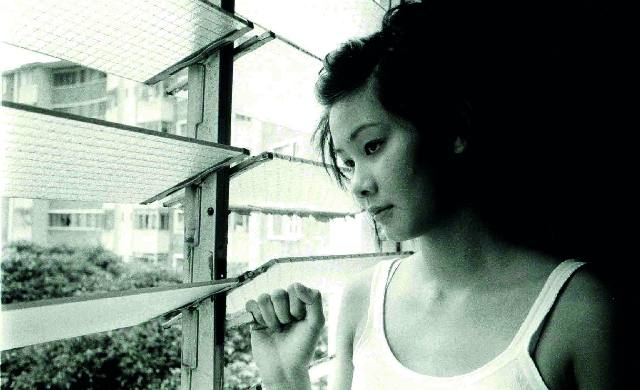
Billed as a “motorcycle kungfu love story,” Eating Air is about Boy and Girl, two very different people who fall in love over high-speed motorbike rides. Long sold out, a re-release of the DVD can’t be too far away now that we all know who Kelvin Tong is.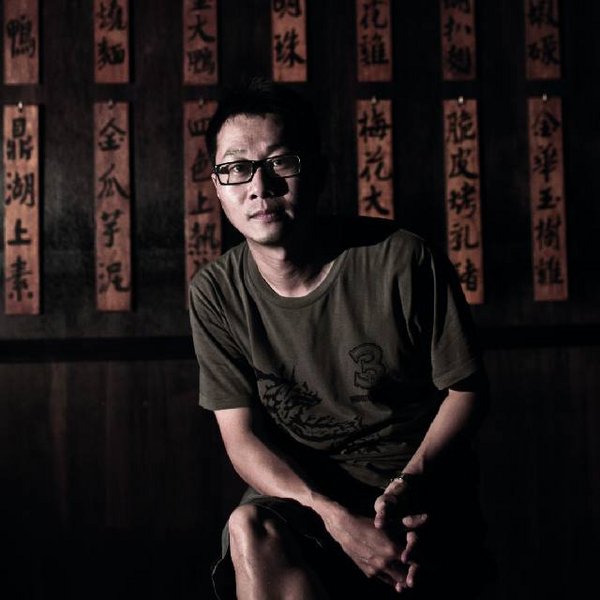 Kelvin Tong
Kelvin Tong
Director, Boku Films
We all can never forget our first times and Eating Air was my and Jasmine Ng’s debut feature film. It was a totally rock ‘n’ roll experience. We were young, crazy and absolutely refused to take no for an answer. I think Eating Air captured a certain magic of freewheeling youth in Singapore.
Most memorable scene: The very last shot of the film—a long tracking shot of Ah Girl walking alone through the CTE tunnel. It’s a simple and devastatingly tragic shot. When I watch the film now, I get a lump in my throat as the music begins. Maybe it’s the breathtaking banality of the CTE tunnel. Maybe that shot was also the last frame me and Jasmine shot on the Eating Air shoot. Good old-fashioned nostalgia—never fails to work on me.
Invisible City (2007)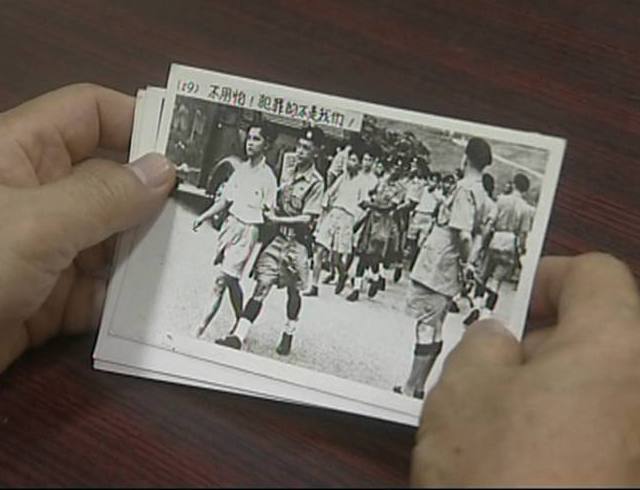
Tan Pin Pin’s hour-long documentary about people who document things— journalists, photographers and archaeologists—explores the fragility of history through memories and aging images. You can buy a box set of Tan Pin Pin’s films from Objectifs Films or try your luck at Kinokuniya, HMV and Gramophone. Boo Junfeng
Boo Junfeng
Director
Invisible City is one of my favorites. Through the stories of different individuals who attempt to immortalize their memories, we discover a beautiful and poignant portrait of a Singapore that we don’t often see. It is one of the most honest and reflective films about Singapore that I have seen.
Most memorable scene: The scene where Ivan Polunin’s narration of his footage of the 1950s is placed over a black screen. We hear very clearly that his own memories are also fading, yet he desperately wants to document them before they disappear completely.
SuperDONG (2007)
In this four-minute semi-animated short film from Pok Yue Weng, a young man on the toilet draws a giant penis on the cubicle door which attacks other “dirty” drawings once he leaves. Watch the movie online at www.babelgum.com Eric Khoo
Eric Khoo
Director and Producer, Zhao Wei Films
I can watch it over and over again and it still gets me cracking. It’s the most original thing I have ever watched and I told the director to send it to Directors’ Fortnight at Cannes. He did, and it was immediately selected. I recently saw a French commercial that stole his idea!
Most memorable scene: When Super Dong whacks about all the other smaller graffiti pricks on the walls of the toilet cubicle!





